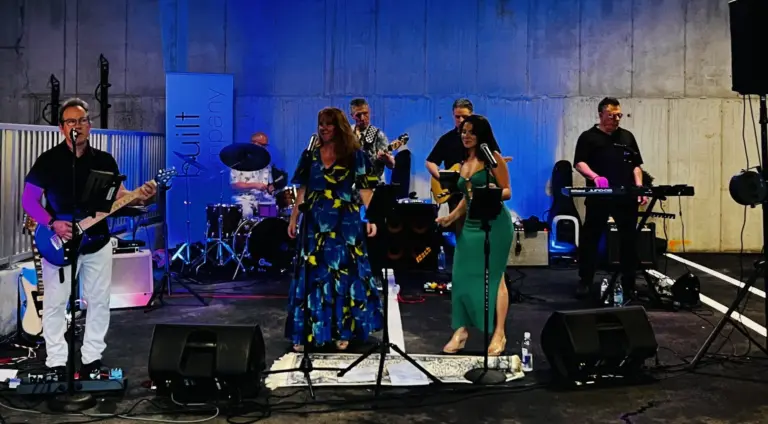
By: Jack Creeden
Most of us today would agree that this period of coronavirus is not “the best of times,” nor do I think it is “the worst of times.” But I suspect everybody would agree it is the most uncertain of times.
It is traditional during a Commencement address to exhort graduates to see a promising future ahead. “Go forth, find your passion, make a difference in the world” are the refrains most often repeated. The comments are designed to motivate graduates to be the very best they can be as they move on to the next stage of their lives. This is, after all, a commencement, a beginning of sorts and what better way to start than to look confidently ahead to the future.
As I sat down to write this Commencement column, I wondered how to describe the impact Covid-19 has had on our lives and how to integrate that with a hopeful view of what’s ahead? To fail to acknowledge the stark realities of death, disease and disruption around the world the virus has wrought would be inexcusable. And yet I wondered if the virus is just the most glaring symptom of a host of societal ills, the majority of which are not health-related.
And what does this have to do with education? Is there a connection between teaching and learning, and the now brutal facts of this world-wide catastrophe? What has happened this winter and spring touches all ages and levels of society. We have learned that the world of education is not immune. And should we fearfully acknowledge that pandemics are a predictable part of our future and no longer the fictionalized subject of a Dystopian Hollywood blockbuster?
Educators are always looking to find the lessons learned from previous experiences. While none of the medical experts who study pandemics think the virus is behind us, I believe we can reflect on the last four months and improve on what we can and should do as teachers and students in the future.
So what have we learned?
1. We’ve been reminded that social interaction is a fundamental part of who we are as human beings. When I ask our students what they miss the most in this online environment, they unanimously say “not being with my friends.” Going to school is a social construct, and although some parents and academics place the highest value on standardized test scores, class rankings, and college placements (e.g., Varsity Blues scandal), students from kindergarten to college have clarified what is most important. The social-emotional curriculum, sometimes referred to as the Second Curriculum, has never been more important.
2. How uplifting it has been to hear the stories of First Responders across the world putting their own lives and safety at risk to save the lives of others affected by Covid -19. These individuals understand what it means to promote the common good and to act out of compassion for another. JFK’s elegant challenge to “Ask not what your country can do for you, but what you can do for your country,” is the guiding principle for those folks. I believe it is the mantra that will lead us out of Covid-19 times.
3. Teachers across America responded to the call for action. In-class lessons were transformed in a matter of days to distance learning. Faculty were on the front lines of education, facing the challenge to continue to teach from kindergarten to post-graduate study in an environment in which very few of them possessed any expertise. Teachers responded to Kennedy’s clarion call.
4. At the same time, one has to admit genuine disappointment when people claim it is their constitutional right to ignore community focused health warnings, to discredit medical science, and to show up as armed militia in state capitols. Those individuals have the ability to read the Constitution, thanks to a primary school teacher, but clearly do not understand it. Whatever your next level of education is, take the time to learn more about Constitutional History, so when a pandemic occurs again, you can accurately interpret the Constitution and show why you understand it is a living document. Then consider Kennedy’s question.
5. The hyper-individualism that characterizes our current society has shattered the belief that individuals have a responsibility to the community at large. People working together, not individuals focused on their own priorities, will solve the Covid-19 crisis. The history of our country in times of crisis is filled with examples of leaders large and small finding a way to collaboratively solve problems. Your highest return on investment after trudging through AP US History is not the grade of 5 (see 1 above), but rather understanding how our government and society work best when we work together.
6. As you try to make sense of the complexities of Covid-19, use the critical thinking you learned in school. Starting in primary, your teachers urged you to ask questions, to reference your sources, and to provide proof for your conclusions. When I was in graduate school, a professor wrote on one of my papers, “Your writing continues the conversation, but does not advance the discussion. This paper needs more critical analysis.” Please thoughtfully discuss Covid and related issues. Base your conclusions on scientific facts, not opinions. Recall the critical thinking lessons you learned in school and apply them. Do more than continue the conversation. Advance the discussion.
These are indeed uncertain times. Covid-19 caught the world unprepared and poorly informed. It has taught us the importance of both social distancing and social integration. The tension between contributing to the larger good versus hyper-individualism can only be resolved by our society relying on factual information and informed understanding of our history and laws. Those are the lessons learned from Covid-19.
Congratulations graduates!




